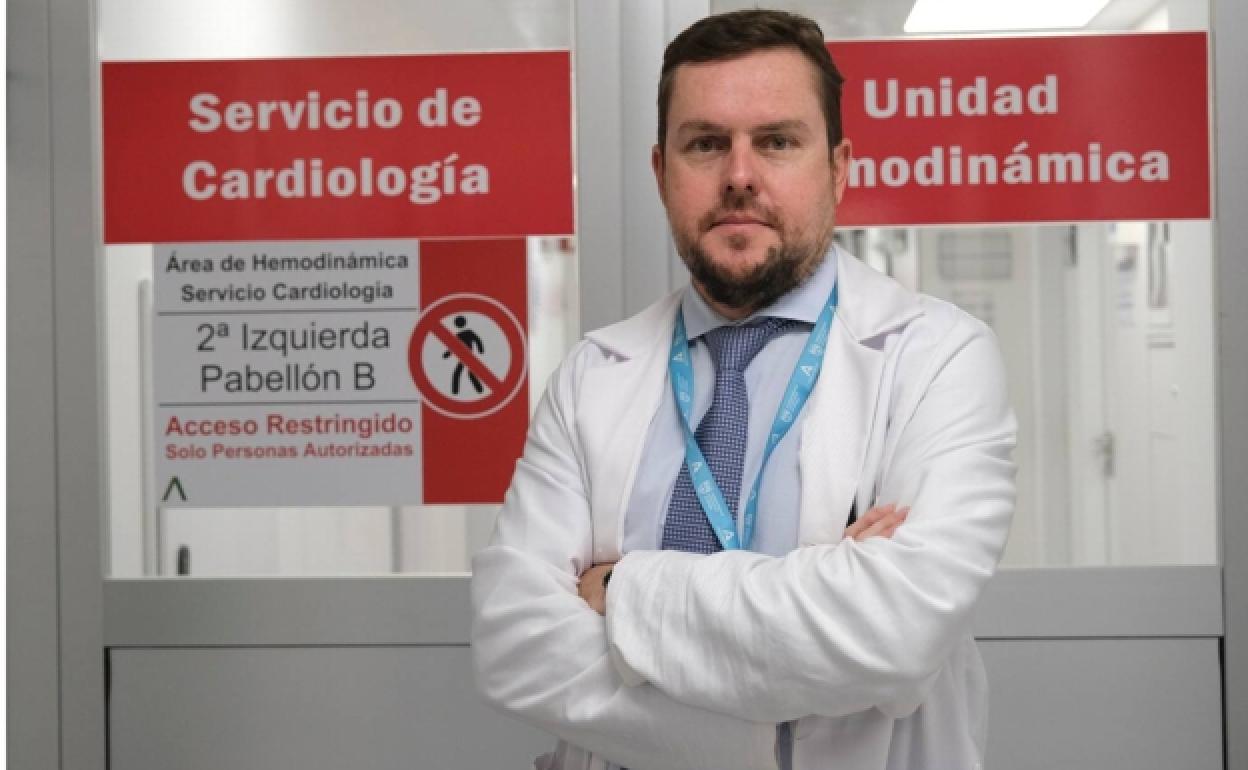Awareness raised over increased heart attacks in thirty year olds as part of World Heart Day
Cristóbal Urbano, head of the cardiology department at Malaga's Regional Hospital, tells SUR of his concerns
Cardiovascular diseases are the leading cause of death in Western countries. Many of these deaths could be avoided if the population took better care of their hearts through healthy lifestyles, a good diet, physical exercise and not smoking, says Cristóbal Urbano, head of the cardiology department at the Regional Hospital of Malaga (formerly Carlos Haya).
During an interview with SUR for World Heart Day, on29 September, the expert says that cardiologists are concerned that they are seeing more and more cases of acute myocardial infarction in people between 30 and 40 years of age, when this used to be an exception.
What are the objectives of World Heart Day?
-The aim is to give visibility to the importance of cardiovascular disease in our society. It is a major global problem, but there is no real awareness of it. Perhaps we professionals are not good at conveying the importance of cardiovascular health care to reduce deaths. People are told that they have a diagnosis of cancer and assume that mortality is high, but if they are told that they suffer from atrial fibrillation, arrhythmia or heart failure, it does not have such an impact on them.
How important is prevention in relation to heart diseases?
- This is like an investment in the future. The messages we convey may not get through as much, because people don't see a real danger until they have a heart attack or angina pectoris. To avoid getting to that point, you have to have prevention ten years earlier, and even from childhood if possible. And, of course, you have to invest in things that are uncomfortable: physical exercise, a healthy diet, blood pressure control and not smoking (smoking is the sword of Damocles for these diseases). We must prevent young people from taking up smoking. This concept of prevention is key. Society must be aware that if this is not done, cardiovascular mortality will continue to be the leading cause in both men and women. Prevention must be seen as an investment in health.
In other words, we need to improve social awareness of cardiovascular diseases.
If you are told from one day to the next that you have a tumour, you immediately become aware of what can happen to you, but if I tell a young person to stop smoking or not to smoke, because smoking can cause them to suffer a heart attack, angina pectoris or a stroke, they do not react because they feel immortality in their way of life. I think that is the difficulty of carrying out these preventive measures.
Heart disease, in absolute numbers, is more frequent in men, but why is it more difficult to diagnose in women?
- Women have a protective effect until the menopause arrives. After that, cardiovascular disease has more serious effects in women than in men. What happens is that in the overall calculation of all population groups, men have a higher mortality rate, but in older post-menopausal women, mortality is higher than in men, especially due to coronary heart disease and heart failure. On the other hand, there is the problem of under-diagnosis of heart disease in women. The health care system needs to take a fresh look to correct this deviation.
Another important preventive factor is physical exercise. What do you recommend to keep the heart as healthy as possible?
- What you should never do is to go from zero to 100. I heard a member of the national bioethics committee speak the other day and he said that you don't become aware of death until you are in your 50s. We are seeing that many people of that age who were not doing sport, suddenly notice that their body is deteriorating and that they have to do something to stop it. So they start running or cycling. We recommend what we call a physical activity pyramid. You have to start at the bottom, i.e. reduce sedentary lifestyles. Climbing stairs instead of taking the lift or making walking the axis on which exercise is pivoted is good. It is also advisable to strengthen muscles two or three days a week, and to work on flexibility and elasticity. Pilates or yoga are good practices to degrease and move the body to prepare it for cardiovascular activity and strength exercises three to five days a week.
Is daily walking the basis for avoiding a sedentary lifestyle?
- Absolutely. Walking should be the basis of physical exercise and it should be done at a fast pace that allows you to talk steadily, but with some difficulty. I always say that in sport you have to do something that you enjoy so that you get hooked on it and, in that way, you don't give it up. Consistency is more important than the type of sport. It can even be ballroom dancing for older people.

